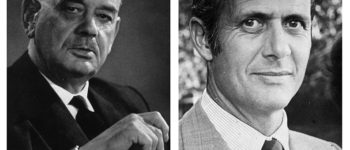1958: Open Hearts
September 2, 2019
By AHNZ
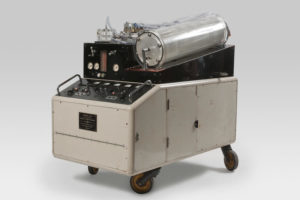
Today in New Zealand history, 3 September 1958, the country’s first open-heart surgery was performed. The team at Greenlane Hospital, Auckland, were not just pioneering health for New Zealand but for the entire human race.
There was a generation of New Zealanders who produced such wonders who, in America, are called The Greatest Generation. In Strauss Howe parlance they were a Heroic, Civic, generation who won wars and made their nations great. Doctors Douglas Robb and Brian Barratt-Boyes most certainly fit that profile. Theirs was an era in which things got done, shredding Red Tape if it got in their way as Patton did to that donkey blocking his bridge.¹ Developing new medicine to repair hearts is very dangerous, lives would be lost. These men accepted risk and responsibility beyond the comprehension of our modern ‘health’ professionals who now safely walk the well-trodden path and worry about being accused of malpractice for getting gender pronouns ‘wrong.’
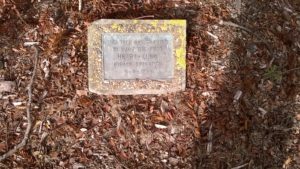
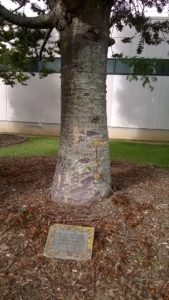 Doctor Robb, born at the start of this Generation, had determined to give New Zealand medicine a great leap forward. He achieved this not by becoming a politician or begging them to do it but by becoming Chancellor of Auckland University and creating the Auckland Medical School. Robb also resolved to create a world-class surgical clinic at Greenlane. Robb was hands on himself but to lead the cardiology team recruited a man born toward the end of this great generation: Dr Brian Barratt-Boyes.
Doctor Robb, born at the start of this Generation, had determined to give New Zealand medicine a great leap forward. He achieved this not by becoming a politician or begging them to do it but by becoming Chancellor of Auckland University and creating the Auckland Medical School. Robb also resolved to create a world-class surgical clinic at Greenlane. Robb was hands on himself but to lead the cardiology team recruited a man born toward the end of this great generation: Dr Brian Barratt-Boyes.
The world was Barratt-Boyes’ oyster, having been trained in his profession in New Zealand, the USA, and England. Robb recruited him for his crack team in New Zealand and funded the Melrose Machine (image top) that made the pioneer work possible.
“On 3rd September 1958, an 11-year old girl was successfully operated on by Barratt-Boyes using the Melrose machine to bypass her heart for 25 minutes. This pioneering operation was undertaken without text books or manuals and before the development of modern sterilisation and computer aided techniques that are available today.”- MOTAT
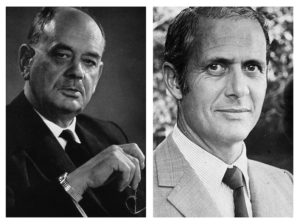 It is significant that Barratt-Boyes settled down and stuck to his home ground. These days important community roles have been ulta-professionalised so that Kiwi society is strip-mined of its talented members who go away to the highest bidder, perhaps even offshore in the great Brain Drain. The isolation of Auckland, Barratt-Boynes once suggested, “conferred an advantage comparable to that enjoyed by the [famous] Mayo Clinic..”² as their development work was left free to flourish. These days the reach of The State is so great there would be no place to hide for a Barratt-Boyes or his team.
It is significant that Barratt-Boyes settled down and stuck to his home ground. These days important community roles have been ulta-professionalised so that Kiwi society is strip-mined of its talented members who go away to the highest bidder, perhaps even offshore in the great Brain Drain. The isolation of Auckland, Barratt-Boynes once suggested, “conferred an advantage comparable to that enjoyed by the [famous] Mayo Clinic..”² as their development work was left free to flourish. These days the reach of The State is so great there would be no place to hide for a Barratt-Boyes or his team.
—
1 Archetype of this generation, General Patton. If you’ve seen the film you know what scene I mean; Patton (1970)
Image refs. Plaque remembering the 1958 bypass; AHNZ (2018)
Image ref. Melrose Machine; The Museum of Transport and Technology (MOTAT)
Image ref. Robb and BB; Bravehearts.co.nz [defunct (2024.) Archived here though]
 Like Comment Share
Like Comment Share

